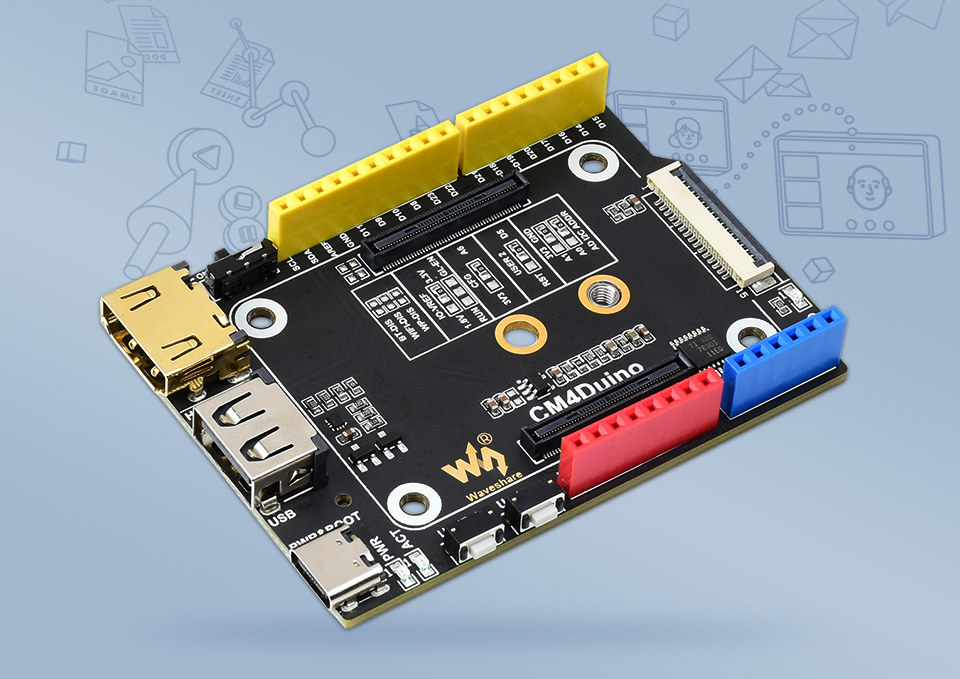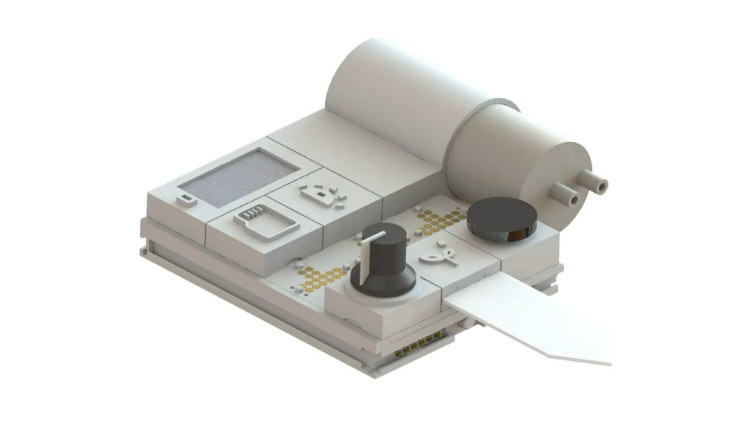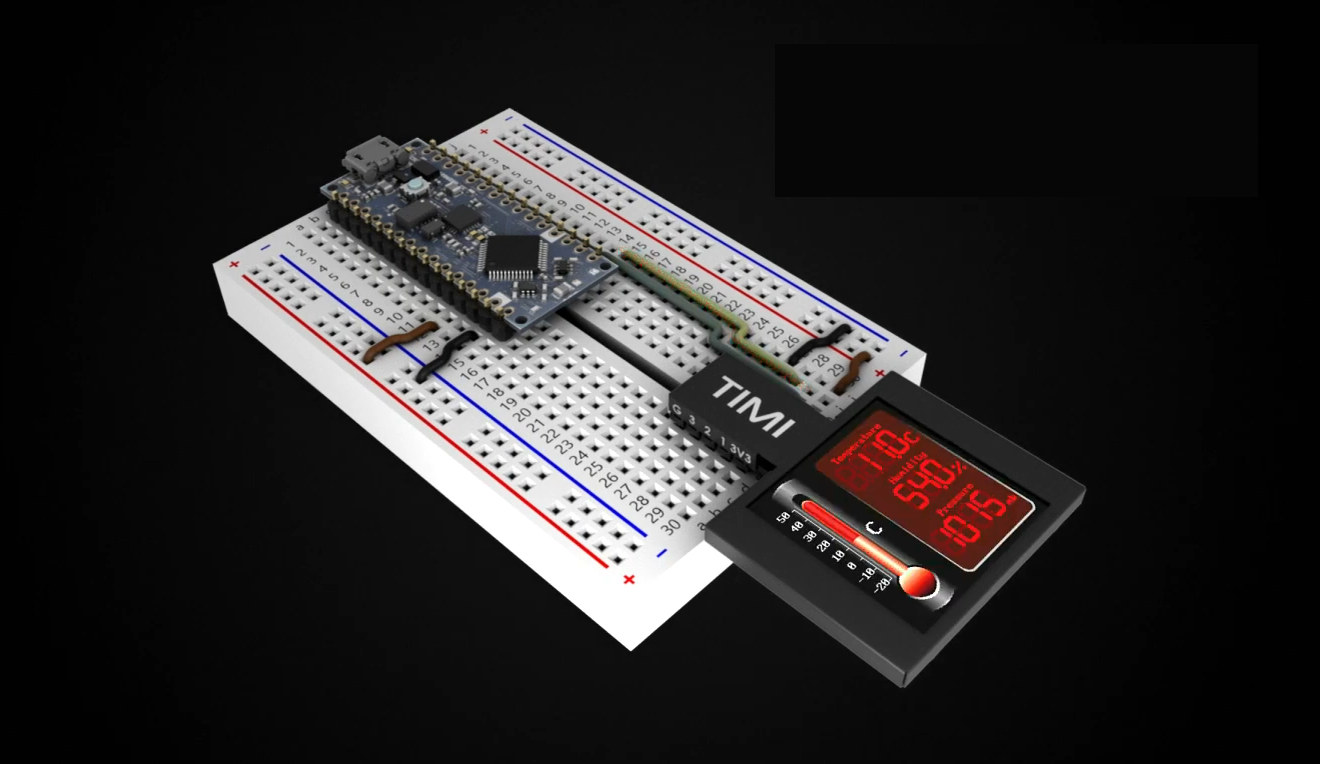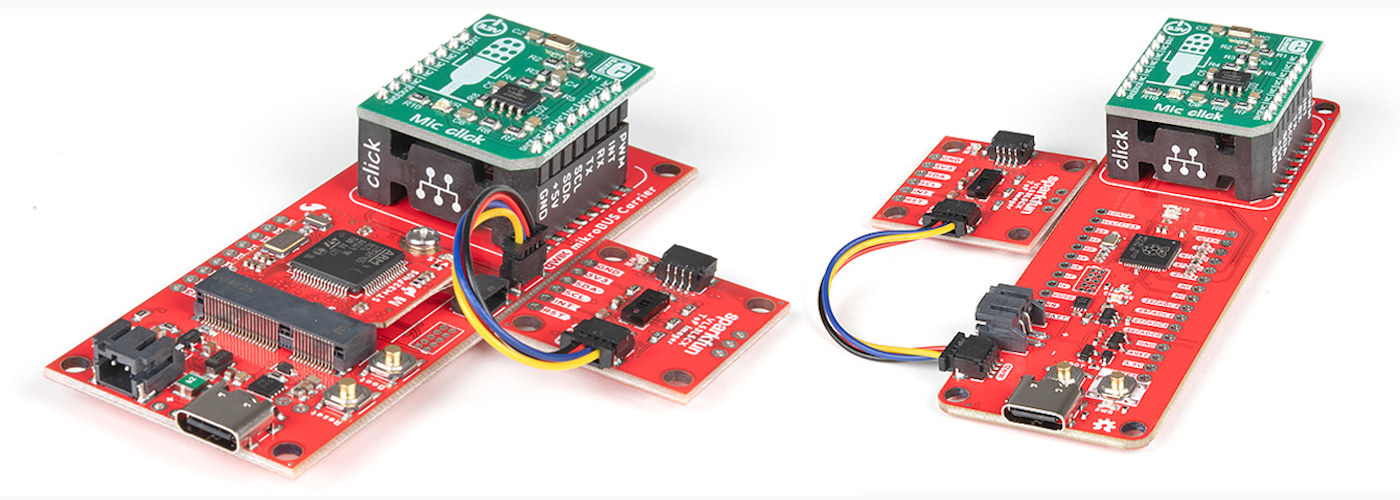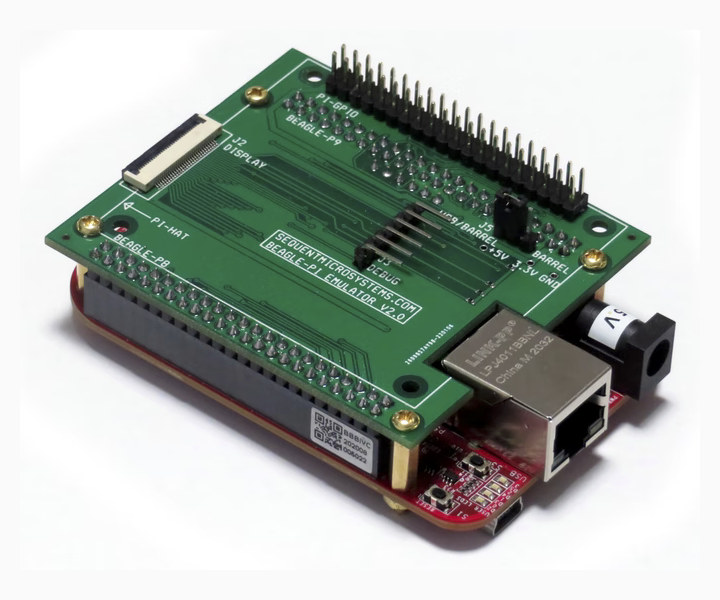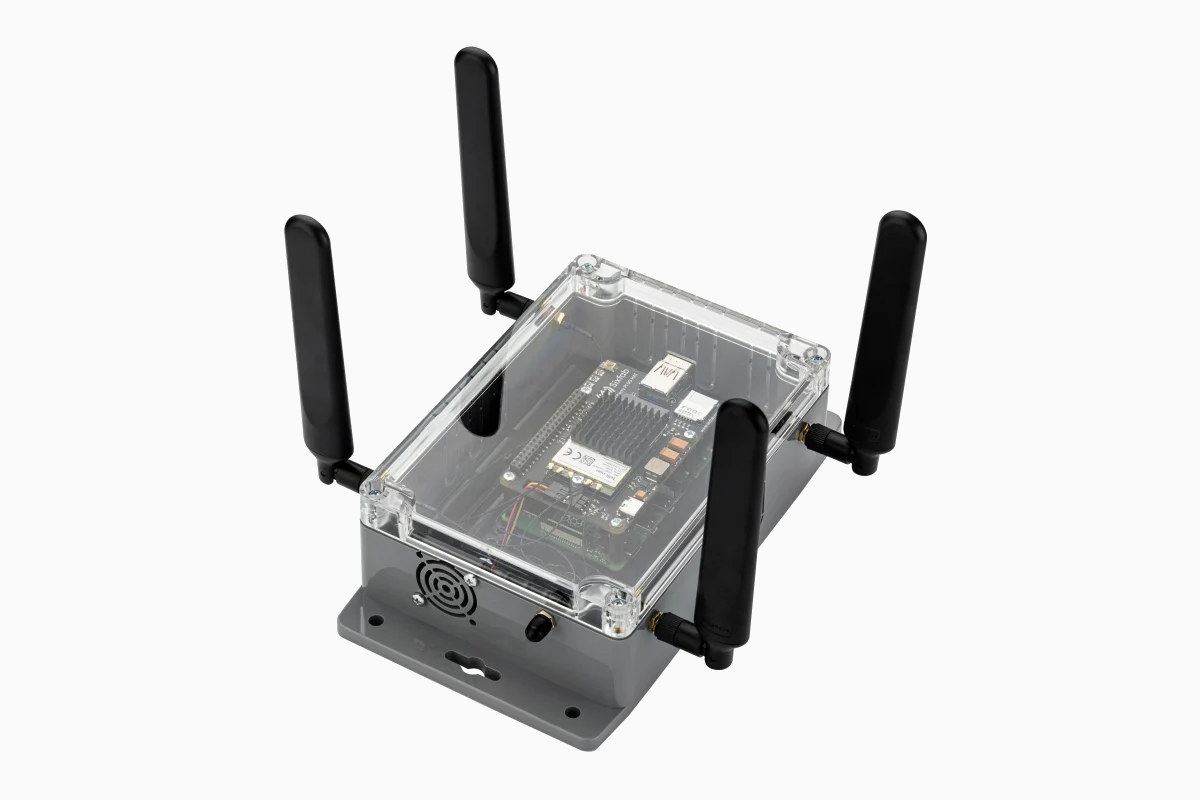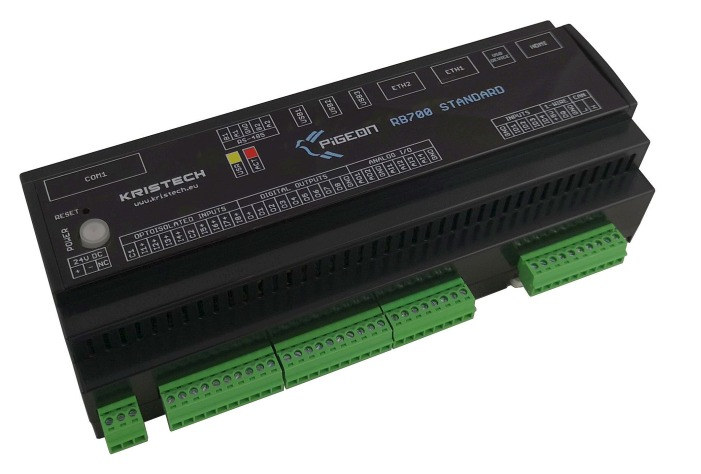Waveshare CM4-Duino is a carrier board for Raspberry Pi Compute Module 4 (CM4) that follows Arduino UNO R3 form factor while offering HDMI output, a MIPI CSI camera interface, a USB interface, and even an M.2 M Key socket for expansion. This allows the board to reuse most Arduino shields while offering the flexibility of a more powerful Arm Linux platform that can further be expanded with an NVMe SSD or a wireless module through the included M.2 socket. Waveshare CM4-Duino specifications: Support SoM – All variants of Raspberry Pi Compute Module 4 Storage MicroSD card socket for Compute Module 4 Lite (without eMMC) variants Optional NVMe SSD via M.2 socket Video Output – HDMI up to 4Kp30 (not sure why 4Kp60 would not be supported) Camera I/F – 1x MIPI CSI-2 connector USB – 1x USB 2.0 Type-A header, 1x USB Type-C for power and programming Expansion M.2 M […]
Pockit modular Linux computer gets a Raspberry Pi CM4 upgrade
We first wrote about the Pockit modular Linux computer with hot-plugging magnetic blocks about a year ago. The system was based on a STM32+ESP32 mainboard with a socket for an optional Raspberry Pi Compute Module 3 and included magnets and electrical contacts to snap and hot-plug modules/blocks while the computer is running. The developer (Anil Reddy) has made good progress with the project and added the option to use a Raspberry Pi CM4 with Pockit (provided you can find one) to improve performance, for example for computer vision. Other changes include support for AI accelerators, an improved dashboard, home automation integration, and more. Pockit now supports over 80 feature BLOCKS ranging from a rotary encoder to a microSD card reader to various camera types, an HDMI block, AI accelerators, and so on. All of which can be magnetically snapped while the computer is running, and automatically detected in the dashboard. […]
TIMI-130 – A breadboard color display with hundreds of pre-designed user interfaces
Tiny I2C, UART, or SPI displays are usually not difficult to connect to a breadboard with a few jumper cables, but Breadboard Mates TIMI-130 display makes that neater with a design made specifically for the breadboard, plus hundreds of pre-designed user interfaces/pages to simulate buttons, LED matrices, gauges, and other widgets. TIMI stands for Tiny Intelligent Modular Instrument, and TIMI-130 comes with a 1.3-inch color TFT IPS LCD, plus two 5-pin headers to power and connect the display to the breadboard through UART or I2C and update the widgets and values with simple commands. TIMI-130 specifications: Display driver – 4D Labs Pixxi-28 graphics processor with 14KB SRAM, 32KB flash Storage – 32MB flash Memory. Display – 240×240 pixel resolution TFT IPS LCD (non-touch). 2x 5-pin 2.54mm pitch headers with 3.3V (5V tolerant) serial UART interface (300 to 2187500 Baud). Master I2C (3.3V level) interface bus. 3x GPIO (3.3V level): 2x […]
Picovoice on-device speech-to-text engines slash the requirements and cost of transcription
Picovoice Leopard and Cheetah offline, on-device speech-to-text engines are said to achieve cloud-level accuracy, rely on tiny Speech-to-Text models, and slash the cost of automatic transcription by up to 10 times. Leopard is an on-device speech-to-text engine, while Cheetah is an on-device streaming speech-to-text engine, and both are cross-platform with support for Linux x86_64, macOS (x86_64, arm64), Windows x86_64, Android, iOS, Raspberry Pi 3/4, and NVIDIA Jetson Nano. Looking at the cost is always tricky since companies have different pricing structures, and the table above basically shows the best scenario, where Picovoice is 6 to 20 times more cost-effective than solutions from Microsoft Azure or Google STT. Picovoice Leopard/Cheetah is free for the first 100 hours, and customers can pay a monthly $999 fee for up to 10,000 hours hence the $0.1 per hour cost with PicoVoice. If you were to use only 1000 hours out of your plan that […]
SparkFun Raspberry Pi RP2040 & MicroMod boards take mikroBUS Click expansion boards
We’ve previously written articles about boards featuring the mikroBUS interface supporting thousands of Click expansion boards from Mikroelectronika, and now the company has collaborated with Sparkfun who launched MicroMod and Raspberry Pi RP2040-based boards with a mikroBUS socket, plus Qwicc connectors. Raspberry Pi RP2040 is the well-known dual-core Arm Cortex-M0+ microcontroller found in Raspberry Pi Pico and a range of third-party boards, while Sparkfun MicroMod‘s are M.2 MCU modules with chips from Microchip, Nordic Semi, Ambiq, Espressif Systems, and NXP. Sparkfun RP2040 mikroBUS development board specifications: MCU – Raspberry Pi RP2040 dual-core Cortex M0+ microcontroller up to 133 MHz with 264 KB SRAM Storage – 16MB QSPI flash, MicroSD card socket (on the bottom side) USB – USB Type-C port Expansion mikroBUS Socket 2x Qwiic connectors Thing Plus (or Feather) pin form factor with 18 GPIO pins including up to 4x 12-bit ADC, up to 8x 2-channel PWM, up to […]
Beagle-Pi Emulator is a Raspberry Pi HAT adapter for BeagleBone Black (Crowdfunding)
We recently reported the Raspberry Pi boards were getting really expensive due to a lack of supply, and the problem has gone on for while without a clear idea when the issue will be resolved. This does not help Raspberry Pi HAT manufacturers, and for instance, Sequent Microsystems has made Raspberry Pi HATs over the years most models with multiple relays, but also others for temperature sensors, and others automation applications. One solution would be to use compatible boards like ODROID-C4 or Rock64, but Sequent Microsystems found out the BeagleBone Black Industrial was well-stocked by various distributors, and instead, they designed the “Beagle-Pi Emulator” adapter to use Raspberry Pi HAT on the Texas Instruments Sitara AM3358 board. An adapter is needed because the BeagleBone Black boards are equipped with two 46-pin headers instead of the 40-pin header on Raspberry Pi SBC’s. The expansion board routes I2C, SPI, four serial […]
Raspberry Pi 5G Development Kit to ship with Quectel RM50xQ or Telit FN980 modem
SixFab is now taking pre-orders for its “Raspberry Pi 5G Development Kit” equipped with either Quectel RM50xQ or Telit FN980 5G modem fitted to SixFab’s Raspberry Pi 5G HAT, all housed in a plastic and acrylic enclosure with four antennas. The selected modems rely on the worldwide 5G NR Sub-6GHz and mmWave frequency bands, and the company says a data throughput of up to 5.0 Gbps (download) and 1.0 Gbps (upload) is possible with the kit. SixFab explained the 5G devkit is designed to help with the development, optimization, and testing of MTC (Machine-type Communication) and M2M projects leading to products such as IoT gateways, indoor and outdoor CPE, high bitrate video streaming, real-time sensor data broadcasting, high-speed mobile 5G hotspot, etc. SixFab Raspberry Pi 5G Development Kit specifications: Works with Raspberry Pi 4 or compatible SBC’s with USB 3.0 port Raspberry Pi 5G HAT with M.2 socket optionally fitted […]
Pigeon RB700 is a DIN Rail automation controller with RS-485, RS-232, Ethernet, CAN FD, 1-WIRE, RS-232, and more
We’re covered DIN-Rail industrial computers powered by Raspberry Pi CM4 module, but Kristech’s Pigeon RB700 automation controller may be the one with the most features so far thanks to two RS-485 ports, two Ethernet ports, CAN FD, 1-WIRE, RS-232, 12 digital inputs (8 optoisolated, 4 dry contacts), and 8 digital outputs. That’s for the common features present in all variants including RB700 Essense. The RB700 Standard model adds UPS, HDMI, analog I/Os, and TPM, while the RB700 Advance is further equipped with two M.2 sockets (for SSD and/or cellular modem) and two additional RS-232 ports. Pigeon RB700 specifications: Supported SoM- Raspberry Pi CM4 with up to 8GB RAM, up to 32GB flash, optional WiFi 5 and Bluetooth 5.0 module Video Output (Standard and Advance) – HDMI port Networking – 2x Ethernet ports USB – 2x or 3x USB 2.0 ports Wired communication interfaces 3x RS-232, 2x RS-485, CAN FD, 1-Wire […]


